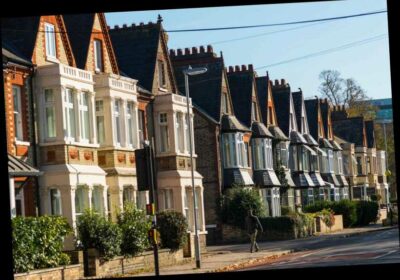Ban on home repossessions extended until April – but bailiffs can knock for debts from next month

A BAN on home repossessions has been extended until April – but bailiffs will still be able to seize goods and cars.
Repossessing homes due to unpaid bills has been halted since March last year so homeowners can safely observe government guidance to stay at home without fear of losing their property.
😷 Read our coronavirus live blog for the latest news & updates
Repossessions were due to start up again at the end of October, but tougher coronavirus restrictions saw the ban extended until the end of January 2021.
The Financial Conduct Authority (FCA) launched a consultation earlier this month looking at pushing back the deadline again until at least April 1 to support struggling bill payers through England's third national lockdown.
While moving house is legal during the shutdown, the regulator believes forcing families to move will put them at unnecessary risk.
It has now confirmed that the ban will continue and repossessions cannot be enforced before April 1 2021, except in exceptional circumstances.
Debt collectors: Know your rights
HERE are your rights, according to Citizens Advice:
- All bailiffs should send you a letter before they visit to check if you're vulnerable because of Covid-19.
- They should give you at least 30 days' notice if they are collecting debts owed to your council, court fines or child maintenance.
- They're not allowed to enter your home to take goods – they should only talk to you, collect money or give you documents.
- They must make sure they are social distancing.
- If you're vulnerable or in financial hardship caused by the pandemic they must refer you to debt advisers.
If you think debt collectors have broken the rules, or acted aggressively by issuing threats, intimidation, offensive language, or repeatedly visiting, texting or calling you then you should complain to the organisation you owe money to.
Lorraine Charlton, debt expert at Citizens Advice, said: "Complaining won’t cancel your original debt, but it can give you a chance to deal with it in a way that suits you."
However, the extra support is only being offered to homeowners and will not cover vehicles and consumer goods from January 31.
It argues seizing products does not put homeowners at risk in the same way, as long as bailiffs observe social distancing rules.
The City watchdog said repossessions should still only be carried out as a last resort and the impact on vulnerable customers should also be considered.
Continuing to halt repossessions could end up costing borrowers more in the long run, it said, due to higher borrowing interest rates and the falling value of goods and vehicles.
Currently, properties and consumer goods should only be seized in exceptional circumstances.
The FCA said borrowers can still apply for a payment holiday until March 31 on their mortgage, personal loans or credit card if they are struggling with their bills.
See how you can apply for a mortgage payment holiday.
A ban on bailiff evictions due to end on January 11 has been pushed back until at least February 21.
The scheme was first introduced in March 2020 as a short-term measure but has seen its ending extended multiple times throughout the year.
Source: Read Full Article
